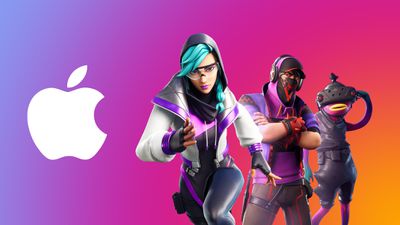The first day of the bench trial between Fortnite creator Epic Games and Apple is officially underway, with the companies delivering opening remarks before District Judge Yvonne Gonzalez Rogers in a Northern California courtroom.

The saga dates back to August 2020, when Apple removed Fortnite from the App Store after Epic Games introduced a direct payment option in the app for its in-game currency V-Bucks, in defiance of the App Store rules. In what appears to have been an orchestrated move, Epic Games promptly filed a lawsuit against Apple, accusing the company of anti-competitive actions and describing the App Store as a monopoly.
Shortly after removing Fortnite from the App Store, Apple issued a statement saying that the App Store guidelines are applied equally to every developer, adding that Epic Games has benefitted from the App Store ecosystem for over a decade:
Today, Epic Games took the unfortunate step of violating the App Store guidelines that are applied equally to every developer and designed to keep the store safe for our users. As a result their Fortnite app has been removed from the store. Epic enabled a feature in its app which was not reviewed or approved by Apple, and they did so with the express intent of violating the App Store guidelines regarding in-app payments that apply to every developer who sells digital goods or services.
Epic has had apps on the App Store for a decade, and have benefited from the App Store ecosystem - including its tools, testing, and distribution that Apple provides to all developers. Epic agreed to the App Store terms and guidelines freely and we're glad they've built such a successful business on the App Store. The fact that their business interests now lead them to push for a special arrangement does not change the fact that these guidelines create a level playing field for all developers and make the store safe for all users. We will make every effort to work with Epic to resolve these violations so they can return Fortnite to the App Store.
Epic Games CEO Tim Sweeney was directing criticism at Apple for months before the lawsuit was filed. In June 2020, for example, he tweeted that "opening iOS and Android up as truly open platforms with a genuinely level playing field between first party and third party apps and stores is the only way to ensure a competitive, healthy, and fair app economy."
Sweeney has particularly taken issue with the 30% commission that Apple collects from sales of apps and select in-app purchases. Apple has since launched a Small Business Program that reduces the App Store's commission rate to 15% for developers earning up to $1 million per calendar year in net revenue from the sale of apps and in-app purchases. For developers exceeding this threshold, the 30% rate still applies.
We'll be updating this story as opening remarks from Epic Games and Apple and other notable details are shared during the trial. We'll also have continued coverage with highlights from the trial over the next few weeks.
Epic Games' Opening Remarks
Epic Games lawyers argued that the App Store and iOS as a whole are a "walled garden" and said that developers would not be interested in using Apple's in-app purchase system if it were optional. Epic Games lawyers then went through a series of emails from current and former Apple executives like Tim Cook, Phil Schiller, Eddy Cue, and Steve Jobs that they believe supports this "walled garden" argument.
Epic Games lawyers argued that Apple's standard 30% commission on App Store purchases is monopolistic.
Now to the heart of this case: The 30% fee. Epic says the 30% Apple charges for in-app fees was not based on costs required to maintain the app store or make it secure. "There's a name for businesses that set prices without regard to costs: Monopolists." — erin griffith (@eringriffith) May 3, 2021
Apple's Opening Remarks
Apple lawyers argued that the App Store is curated, safe, reliable, and family friendly, and that the App Store ecosystem has served as an economic driver for over a decade, creating millions of jobs for developers.
Apple argues: Epics requested relief would undo everything Apple and app developers have built and everything consumers "have trusted and loved." It would also force them to license their IP to anyone. "The law just does not permit this." — erin griffith (@eringriffith) May 3, 2021























